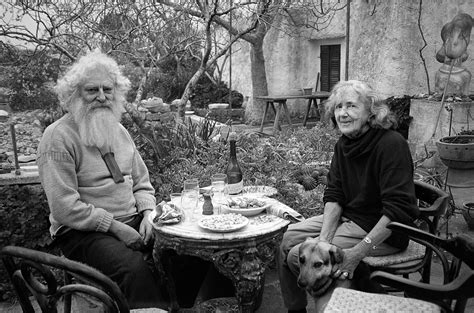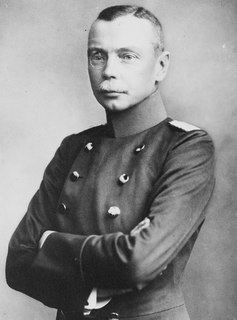A Quote by Aristotle
The virtue of a faculty is related to the special function which that faculty performs. Now there are three elements in the soul which control action and the attainment of truth: namely, Sensation, Intellect, and Desire. Of these, Sensation never originates action, as is shown by the fact that animals have sensation but are not capable of action.
Related Quotes
We suffer from a hallucination, from a false and distorted sensation of our own existence as living organisms. Most of us have the sensation that "I myself" is a seperate center of feeling and action, living inside and bounded by the physical body-a center which "confronts" an "external" world of people and things, making contact through the senses with a universe both alien and strange.
The vicarious responsibility for things we have not done, this taking upon ourselves the consequences for things we are entirely innocent of, is the price we pay for the fact that we live our lives not by ourselves but among our fellow men, and that the faculty of action, which, after all, is the political faculty par excellence, can be actualized only as one of the many and manifold forces of human community.
Faculty Psychology is getting to be respectable again after centuries of hanging around with phrenologists and other dubious types. By faculty psychology I mean, roughly, the view that many fundamentally different kinds of psychological mechanisms must be postulated in order to explain the facts of mental life. Faculty psychology takes seriously the apparent heterogeneity of the mental and is impressed by such prima facie differences as between, say, sensation and perception, volition and cognition, learning and remembering, or language and thought.
The essential thing is action. Action has three stages: the decision born of thought, the order or preparation for execution, and the execution itself. All three stages are governed by the will. The will is rooted in character, and for the man of action character is of more critical importance than intellect. Intellect without will is worthless, will without intellect is dangerous.
If a man of good natural disposition acquires Intelligence [as a whole], then he excels in conduct, and the disposition which previously only resembled Virtue, will now be Virtue in the true sense. Hence just as with the faculty of forming opinions [the calculative faculty] there are two qualities, Cleverness and Prudence, so also in the moral part of the soul there are two qualities, natural virtue and true Virtue; and true Virtue cannot exist without Prudence.
Love is not a feeling; it's a sensation. Drinking water when you're thirsty is a sensation, not a feeling. Being in nature or swimming in the sea is a sensation, not a feeling. Lying down when you're tired is sensational, not a feeling, although you may say it feels good. Feeling is an emotional interpretation of experience and these sensations don't need interpretation; they are just good or right. Making physical love rightly is a sensation, not a feeling. So is the love of God. The same goes for joy and beauty; both are sensational.'




































